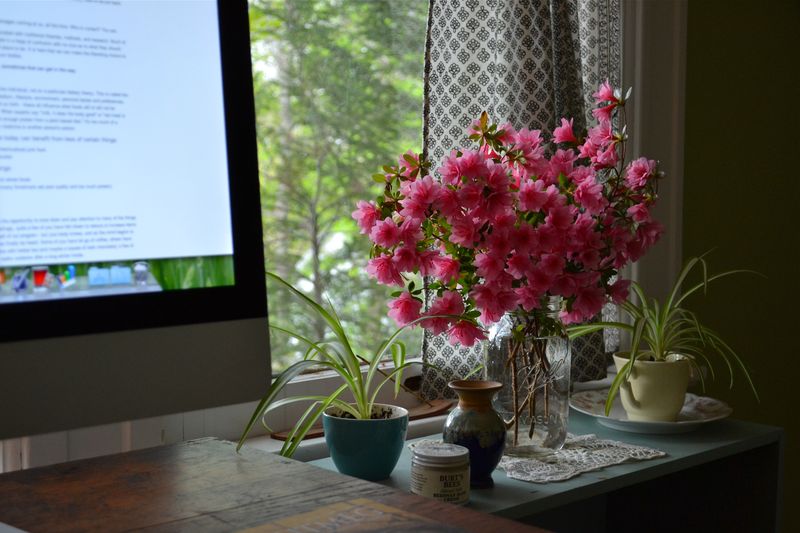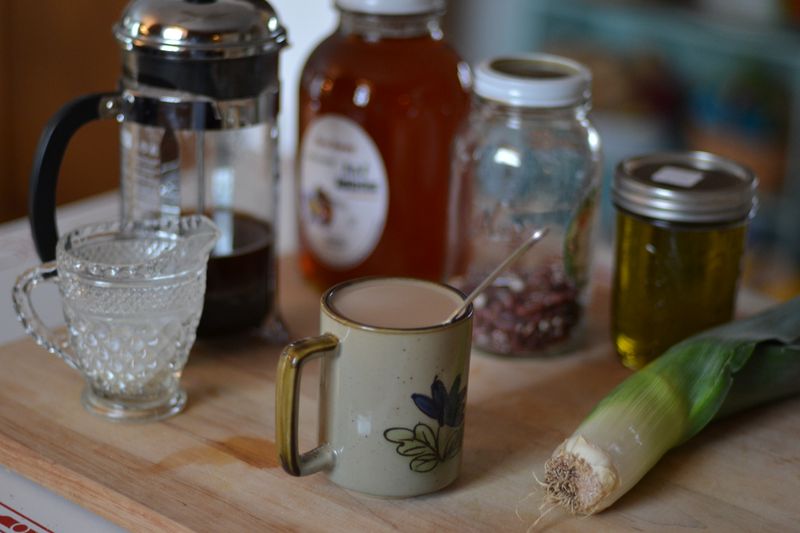Five days a week I leave the house to take Emily to classes. I’ve been doing this for a full year and I’m not sure why, but I can’t get used to it. I wonder what it would feel like to comfortably exist within the pace of this world. Hustle, bustle, get 'er done. I could really use that superpower most days. Shuffle, drive, cook, clean, work, grow, facilitate, make, study (coupled with lots of internal dialogue about what I am studying and why), rinse and repeat. Life used to be quieter, and it will be again someday, just not today. For what it’s worth, even though things feel at their limit these days, my level of "busy" pales in comparison with our societal norm. Which to be honest adds to my frustration because it’s just another reminder of my inability to “deal.” I recently read something that suggested certain people "need large swaths of down time in order to protect their health." This makes sense to me. Our homeopath shared a nugget of wisdom years ago when we were trying to figure something out health-wise; he told us that “some people simply need to exist in a low stimulus environment.” Like, that’s the whole kit and caboodle. The Rx du jour. The 411. I was floored by how simple yet paramount his suggestion was. A most effective treatment that is absent from any healthcare plan that I know of. His words gave permission for what has become a vital remedy in our home. I've recently slipped away from the prescribed low stimulus environment because I'm human and I have to exist in this world as an adult. More specifically, an adult who is responsible for raising another human and has to get out and about to do so. But that work is mostly done so I am beginning to look forward to a new way of living and Dr. Shevin's message is in the forefront again. A low stimulus environment. My point of return.
Unrelated…. about six months ago I began giving up caffeine. I say began because it took time. Now, after a long yet painless process, I no longer consume caffeine on a daily or even monthly basis. The reason I gave it up has nothing to do with caffeine being good or bad, I just feel better without it. A lot better. If your body is cool with caffeine, then by all means keep throwing it back, I am not here to suggest otherwise. If however, you feel like I did, that it was time to shake the habit so your nervous system and adrenals could function properly, then you might be interested in how I kicked caffeine. I still love coffee. Even though I go through spurts during the year in which I have herbal tea in the morning, for the most part I'm a coffee with the sunrise kind of girl. So I wasn't interested in letting go of coffee, just caffeine.
First, don’t even think about going cold turkey. You’ll most likely be back on caffeine by the end of the week if you try that. Instead, give yourself time. I took a full month to be 95% caffeine free, then another few months to let go of that remaining 5% – and really that was only because I was using up the last of my precious and delicious Mind, Body, and Soul. Waste not, want not.
Here is what I did:
- Week One – brew coffee with 3/4 regular, 1/4 decaf
- Week Two – brew coffee with 1/2 regular, 1/2 decaf
- Week Three – brew coffee with 1/4 regular, 3/4 decaf
- Week Four – brew coffee with mostly decaf, and a pinch of regular
- Week Five and beyond – straight up decaf, or, if you’re like me and have regular around still, keep doing week four until you run out of regular
And that’s about it.
Oh! If you’d like to skip the chemical solvents that are used to produce the majority of decaf coffee on the market, choose one that uses natural methods to decaffeinate beans. Equal Exchange is very upfront about their process, and local to us is a coffee roaster called Ben’s Beans; their decaf is free of chemical production.
Anyway, the caffeine removal process was simple enough, and I feel a lot better for it. Plus, its absence can only contribute to slowing down the pace of life. I hope.


